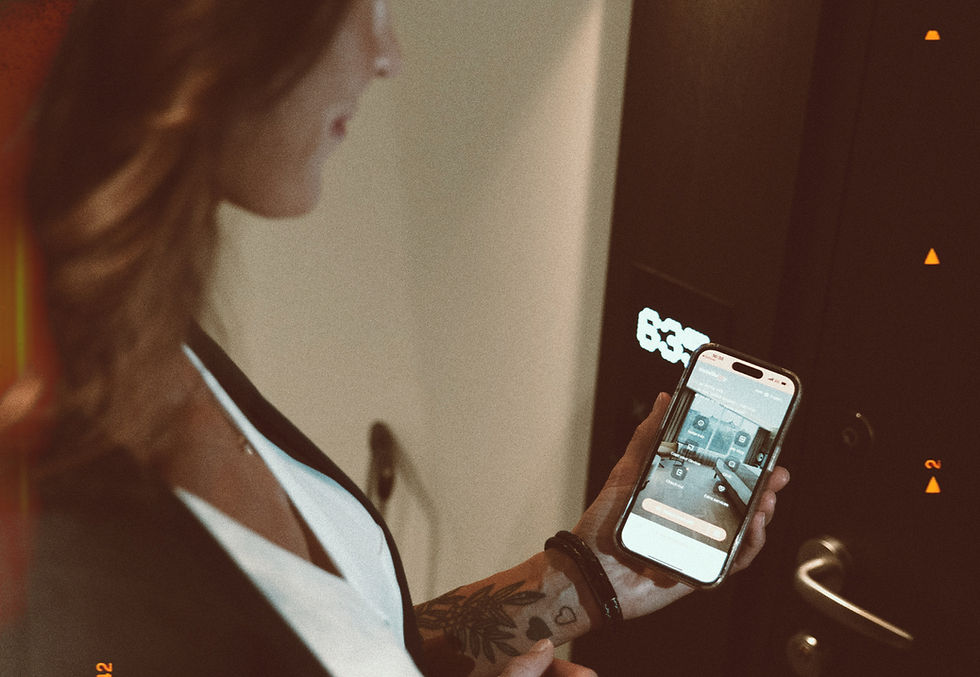How Hotels Enhance Guest Experience with Personalization
- Anu Metsallik

- Nov 1, 2024
- 4 min read
In hospitality personalization has become essential to enhancing customer satisfaction and engagement. A study by PwC found that personalization in guest experiences can lead to a significant increase in customer loyalty, ultimately boosting a hotel's reputation and bottom line. This article delves into strategies and techniques that can help hotels create a personalized guest journey from pre-arrival to post-stay.

Understanding Guest Personalization
Guest personalization refers to the practice of tailoring services and experiences to meet individual preferences, behaviors, and needs. This can range from using a guest's name in communications to customizing room arrangements or offering bespoke amenities such as dietary options. According to a report by Deloitte, 86% of consumers say personalization plays a role in their purchasing decisions. In the hospitality industry, this translates to guests expecting tailored experiences that cater to their unique preferences and needs.
Personalization can manifest in various ways, from remembering a guest's preferred room temperature to offering customized local activity recommendations based on their interests. It's about creating a sense of recognition and value for each individual guest, making them feel as though the hotel experience has been crafted specifically for them.
Why is Personalized Service Important?
Enhanced Satisfaction: Personalization makes guests feel valued, leading to higher satisfaction. A study by Epsilon found that 80% of consumers are more likely to make a purchase when brands offer personalized experiences.
Loyalty Boost: Guests who feel unique are more likely to return and recommend the hotel. Research by Accenture shows that 91% of consumers are more likely to shop with brands that recognize, remember, and provide relevant offers and recommendations.
Competitive Edge: Distinguishes a hotel from competitors by offering tailored experiences. In a crowded market, personalization can be the factor that sets a hotel apart and attracts guests looking for more than just a place to sleep.
Increased Revenue: Personalized upsells and promotions can increase sales of additional services and amenities. According to McKinsey, personalization can deliver five to eight times the ROI on marketing spend and lift sales by 10% or more.
Strategies for Personalizing the Guest Experience
Pre-Arrival Personalization
Begin personalizing the guest experience even before they arrive:
Tailored Communication: Use welcome emails or texts that include the guest's name and any special requests noted at booking. This ensures a warm welcome and builds anticipation for their stay. Consider using AI-powered tools to analyze guest data and create personalized pre-arrival messages that highlight amenities or local attractions based on the guest's preferences or past behavior.
Customized Room Preferences: Offer choices like preferred room scents, pillow types, or mini-bar selections tailored to known preferences. Implement a system that allows guests to select their preferences through a pre-arrival questionnaire or mobile app, ensuring their room is set up exactly to their liking before they step foot in the hotel.
During the Stay
Provide continuous personalization throughout the guest's stay:
Employee Training: Train staff to recognize and engage guests by understanding their profiles and preferences. Encourage staff to address guests by their names and anticipate needs. Implement a customer relationship management (CRM) system that allows staff to access guest preferences and history at a glance, enabling them to provide tailored service effortlessly.
Real-Time Assistance: Use technology like a messaging platform for real-time communication. Responding promptly to requests or inquiries can greatly enhance the guest experience. Consider implementing AI-powered chatbots that can handle routine inquiries 24/7, freeing up staff to focus on more complex guest needs.
Bespoke Experiences: Offer personalized services such as in-room dining tailored to dietary preferences, or curated local experience recommendations. Partner with local businesses to offer exclusive experiences that can be customized based on guest interests, such as private tours or cooking classes with local chefs.
Post-Stay Engagement
Keep the relationship alive even after the guest's departure:
Thank-You Messages: Send personalized thank-you notes, mentioning any memorable experiences or preferences from their stay. This reinforces a positive impression and fosters loyalty. Use data from the guest's stay to create a truly personalized message, referencing specific activities they enjoyed or services they used.
Tailored Offers and Invitations: Use guest data to offer promotions or invitations for future visits, such as discounts on special occasions unique to them. Implement a loyalty program that tracks guest preferences and behaviors, allowing for highly targeted and relevant offers that increase the likelihood of repeat visits.
Leveraging Technology for Personalization
Harness the power of technology to elevate personalization efforts:
Data Analysis: Use hotel management systems to gather insights from past stays and preferences. This data can be crucial in crafting customized experiences. Implement predictive analytics to anticipate guest needs and preferences, allowing for proactive personalization.
Self-Service Solutions: Implement self-check-in systems to streamline operations and free up staff to focus on personalized guest interactions. These systems can also collect valuable data on guest preferences during the check-in process, further enhancing personalization efforts.
Seamless Connectivity: Ensure robust hotel wifi systems that support smart room controls and other IoT devices to enhance guest comfort and convenience. Consider implementing voice-activated room controls that can learn and adapt to guest preferences over time.
By embracing these strategies, hotels can significantly improve the guest experience, leading to higher satisfaction rates, loyalty, and increased revenue. The importance of technology in supporting these experiences cannot be overstated, as it provides the backbone for delivering a seamless and personalized service at every touchpoint.
For the hospitality professional seeking to differentiate and succeed in the modern marketplace, personalization is not just an option—it's a necessity. As research by Skift shows, 79% of hospitality executives believe that failing to embrace digital transformation and personalization will put them at a competitive disadvantage.
By investing in personalization strategies and technologies, hotels can create memorable experiences that keep guests coming back and recommend their property to others, ultimately driving long-term success in an increasingly competitive industry.



